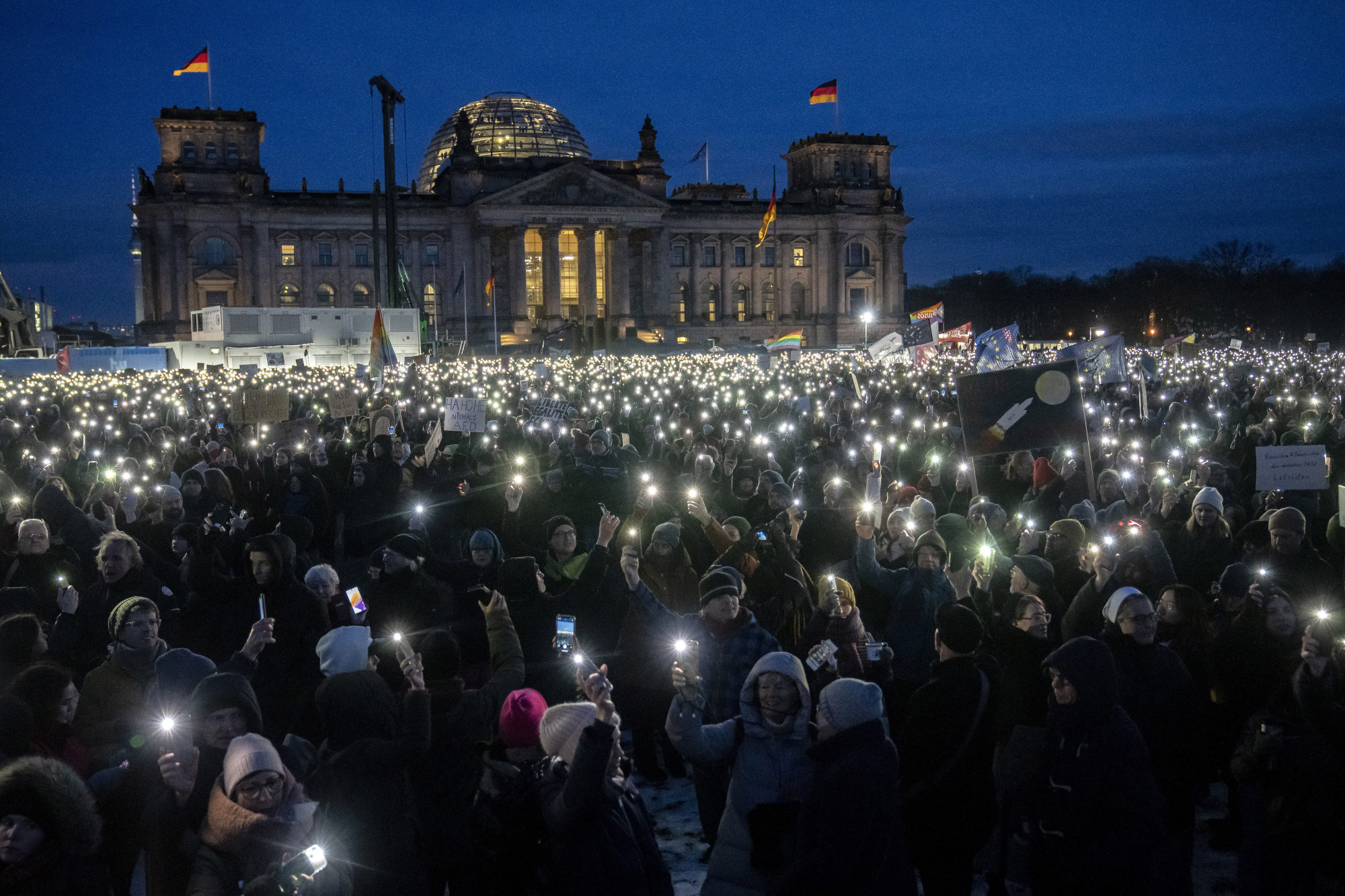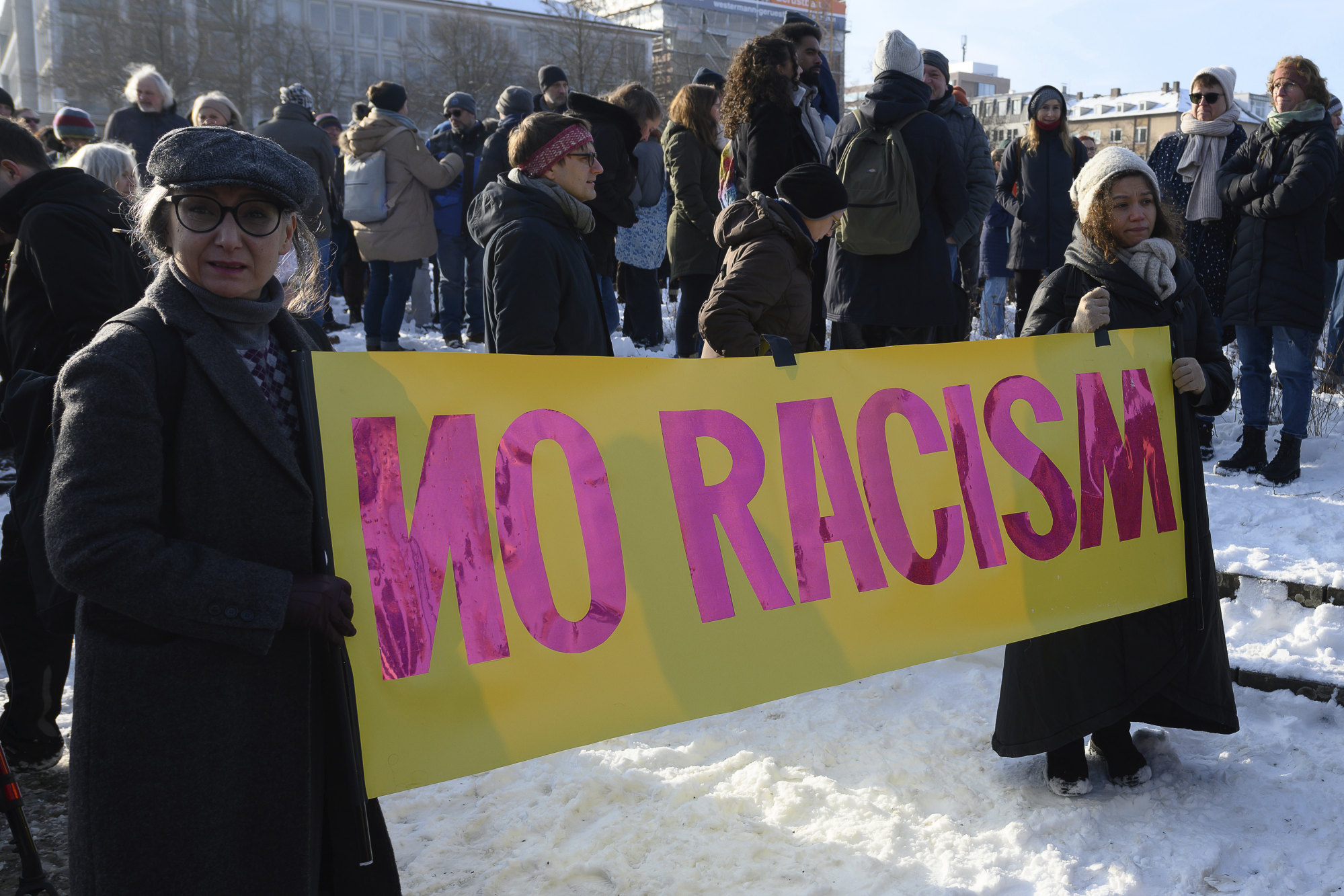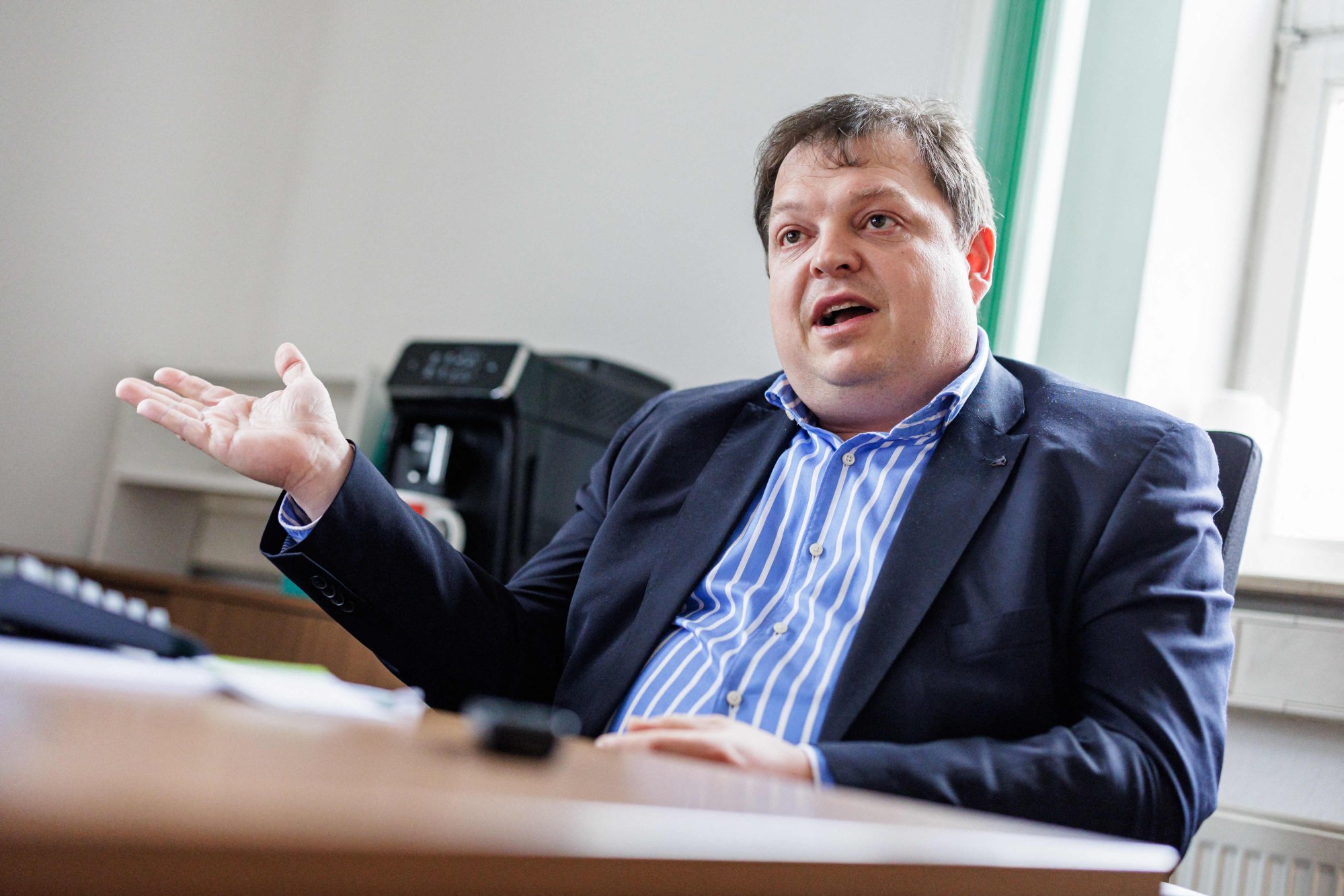.png?itok=arIb17P0)
The President of the Thuringian state branch of Germany’s domestic intelligence agency, Stefan Kramer, has warned against underestimating the danger of right-wing extremist slogans and antisemitism statements by politicians from German far-right party Alternative for Germany (AfD).
“We should finally put aside our false shyness to take seriously what exposed extremists and dictators write or say,” he told the Augsburger Allgemeine newspaper in remarks published on Saturday.
“History has proven many times that they mean what they say and write and that they act accordingly when they get the opportunity.”
However, banning proceedings should only be the “last resort,” he said.
“A ban is the last possible resort, democrats must have explored all other avenues first,” said Kramer. “That is the path we are currently on as citizens,” he said, referring to the current large demonstrations against right-wing extremism in Germany.
Germany has seen a huge wave of protests against the AfD in recent weeks, but they appear to have done little to dilute support for the anti-immigration party in its stronghold.
With its cobbled streets, red sloping roofs and timber-fronted houses, the rural town of Raguhn-Jessnitz in the former East German state of Saxony-Anhalt last year became the first in Germany to elect an AfD mayor.
And residents remain unapologetic about their choice, even if they refuse to give their names when talking about it.
The AfD is “the only party that will change anything”, one 37-year-old father-of-three said, speaking outside a budget supermarket in Jessnitz.
“I voted for other parties for years. It’s just talk and in the end they don’t do anything,” he said.
Asked whether the huge anti-AfD mobilisation had changed his views, he replied: “It has only made them stronger.”

The Alternative for Germany (AfD) party was created in 2013 as an anti-euro outfit before seizing on anger over mass migration to Germany to enter parliament for the first time in 2017.
The party then failed for several years to make any more meaningful progress.
However, it has seen a renewed surge in popularity over the past 12 months, seizing on concerns over rising migration, high inflation and a stumbling economy.
The AfD is currently polling in second place nationally, second only to the conservatives. It is the top party in several eastern regions where elections are set to be held later this year.
But the party sparked a backlash last month after a press investigation revealed that some of its members had discussed the idea of mass deportations at a meeting with extremists.

Hundreds of thousands of people have since taken to the streets across Germany to protest against the AfD and right-wing extremism.
Mayor Hannes Loth, 42, who has been in office in Raguhn-Jessnitz since September, does not think the protest wave will dampen support for his party.
Instead, he believes it will further polarise society. The protests will “encourage people to take more of a stance”, he says.
“The so-called political middle will probably dissolve even more and the edges will be strengthened,” he said.
“So the AfD will become stronger and the far left will also become stronger. I’m absolutely sure of that.”
In the wake of the demonstrations, one key opinion poll reported last week that support for the AfD had dipped below 20 per cent for the first time since July 2023.
But in Saxony, one of the three states going to the polls later this year, a survey last week had the AfD on 35 per cent.

02:27
Germany arrests 25 suspected far-right extremists for alleged plot to overthrow government
Germany arrests 25 suspected far-right extremists for alleged plot to overthrow governmentThere has also been a surge of interest in joining the party, with the FAZ website reporting up to 150 applications a day since the scandal erupted.
Ruediger Schmitt-Beck, a professor of politics at the University of Mannheim, said the protests may have led a small proportion of AfD voters to think twice about supporting the party.
“However, it is more likely that most AfD supporters will ‘dig in’ to positions they already hold, as a kind of counter-mobilisation,” he told the SWR broadcaster.
In Raguhn-Jessnitz, many residents believe the AfD has been unfairly maligned by the media.
“If you say anything against foreigners you’re a right-wing extremist, and that’s what’s so annoying,” said a 62-year-old technical support worker out walking her two dogs.

Others say the protests have been staged by the government to distract attention from other issues.
“These demos are being politically controlled, from above, let’s say,” said a 55-year-old chemical industry worker who gave his name only as Andreas.
The huge protests have raised hopes that the rise of the far-right can be stopped, with a Holocaust survivor Eva Szepesi on Wednesday hailing them as “wonderful”.
But according to politics professor Schmitt-Beck, it will take much more than people waving placards to turn the tide.
“Basically, the argumentative battle with this party must be taken up offensively,” he said.
“Supporters have to be convinced in individual conversations that … what they presumably hope for from this party will not come to fruition.”
Additional reporting by dpa

Mais recomendado:
sugestão relacionada:
Inflação, atividades na China e conflitos trabalhistas podem impactar o...Atvos realiza ações de preservação ambiental no CentroIbovespa avança com apoio de commodities e após BC parar alta da SelicAções de Hong Kong se aproximam de mínima em 11 anos com Fed; caça a...Previsão de chuva nos EUA sustenta elevações do milho em Chicago nesta 5ªfeiram casa de aposta 【Aurl:www.8233066.com】apostas online mega da virada 【Aurl:www.8233066.com】aposta online americana 【Aurl:www.8233066.com】bet365 de onde é 【Aurl:www.8233066.com】melhores casas de apostas com cash out 【Aurl:www.8233066.com】